Frequently Asked Questions
Therapy grounded in presence, compassion, and connection.
General
The first session is a space to get to know each other and explore what’s bringing you here. I’ll outline confidentiality, talk you through how I work, and invite you to share at your own pace what feels most important.
From there, we’ll begin to shape the work together. There’s no pressure to arrive with the “right” words. You’re just welcome to bring your full self, however that looks or feels.
If it feels right for you, we might use creative expression such as drawing, symbols, or visual metaphor to support insight and expression. This is entirely optional and always led by your preferences.
Yes. I offer secure video sessions for clients online at a reduced rate. Many clients find online therapy to be just as effective and often more accessible.
I work from a private, calm space either on Halifax Street in Adelaide CBD, or in Goodwood on Kaurna Land. Location details are provided upon booking.
Sessions are usually 60 minutes long. Weekly or fortnightly sessions are common, but we can discuss the rhythm and frequency that work best for you
My standard session fee is $150. I may also be able to offer concessions and online rates upon enquiry.
Concession and online rates may be available, please let me know if you are low waged or a student
Yes. If your insurer covers counselling under PACFA-recognised providers, you can claim rebates. I provide invoices to support this, but you must check with your provider before the session to confirm your particular eligibility.
Yes. I work with self-managed and plan-managed NDIS participants and can tailor service agreements or invoices as needed.
Absolutely. My practice is inclusive and affirming of all identities and ways of being. You are welcome here.
How I Work
My work is grounded in empathy, respect, and unconditional regard. I believe you are the expert in your own life, and that healing often happens in the presence of another who truly listens and accepts you as you are without fixing, judging, or rushing.
Trauma can profoundly affect how we relate to safety, boundaries, emotions, and connection. My approach is gentle and non-invasive, centred around choice, consent, and collaboration. We go at your pace, always.
I offer space to explore the stories you carry, those given to you, those you’ve resisted, and those you may be in the process of rewriting. Together we can reflect on how these narratives shape your identity, and gently begin to re-author them in ways that feel more authentic and empowering.
At times, words alone may feel distant from what you’re actually experiencing. I integrate body-aware, present-moment practices to gently explore what’s happening beneath the surface in your nervous system, emotions, posture, or tone. This might involve noticing sensations, breath, or impulses together as they arise in the room.
This way of working can help bring unconscious patterns into awareness, support emotional regulation, and build a deeper sense of connection and safety in your body.
Exploring your experiences through creative expression can open up a world of new insight. There is a warm invitation for you to participate in alternative forms of expression so that we might explore them together. This might look like drawing, painting, sound making and movement. Though please know that there is no pressure for you to partake in this type of exploration, should you not wish to.
A responsive, relational approach to therapy.
Therapy with me is not one-size-fits-all. I work integratively, meaning I draw from a range of therapeutic approaches to support the unique ways you experience, express, and make meaning of your life.
Rather than adhering rigidly to one modality, I focus on building a trusting, collaborative relationship with you over time. One that allows for slow and gentle curiosity, richness and depth, and honest care. My intention is to support you in connecting more fully with yourself, your body, your values, and your relationships.
Support Specialists
While they often overlap, counselling typically focuses on specific present-day challenges and practical strategies. Psychotherapy often involves deeper work, exploring patterns, past experiences, and emotional roots over time. I blend both depending on what feels most helpful for you.
Navigating the different types of mental health professionals can be confusing. While there’s overlap in how support is offered, there are also differences in training, focus, and scope. Here’s a simple breakdown to help you make an informed choice:
- Psychologists
Psychologists are university-trained health professionals who study the science of human behaviour and mental processes. They often complete:
- A 4-year psychology degree
- Plus a postgraduate qualification, internship, or master's/doctoral program
Many psychologists focus on mental health through structured approaches like Cognitive Behavioural Therapy (CBT), but some also integrate relational or depth-oriented methods. Psychologists are regulated by AHPRA (the Australian Health Practitioner Regulation Agency). - Psychotherapists
Psychotherapy is a relational and reflective form of mental health care, often focused on long-term emotional growth and understanding. Psychotherapists typically undertake:
- An undergraduate degree (often in a helping profession)
- Followed by 3–4 years of specialist psychotherapy training
- Plus personal therapy and supervised practice
Psychotherapists support clients in exploring deeper patterns, relational dynamics, and the root causes of distress, not just symptom management. In Australia, psychotherapy is self-regulated, so it’s important to check that your therapist is registered with a professional body such as PACFA or ACA. - Counsellors
Counselling can be helpful for navigating specific life challenges such as grief, relationship issues, or major transitions. Training varies widely from short courses to bachelor’s or postgraduate degrees. Counsellors may take a more short-term, solution-focused approach, depending on their experience and modality.
Like psychotherapy, counselling is self-regulated in Australia. Look for counsellors registered with a professional association who commit to ethical standards and ongoing professional development.

